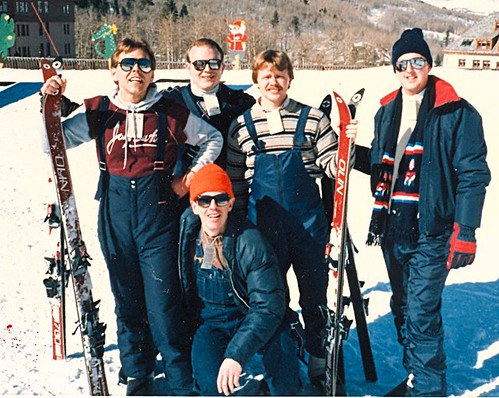Those are two points of view examined in a recent post by Dave Winer.
“If the people with the news can publish it themselves, and they can; what’s to stop the people who want the news from reading it directly.”
Which puts me in mind of High Street Beat, a blog written by the mayor of Jefferson City. Ultimately, his readers get to decide if what he writes is “fair and honest,” but he can speak directly to them, as well as through MSM.
“When professional news people consider the Internet they think of it replacing them. Not so. It reduces their role to a bare minimum, makes them less necessary. I still want soundbites from the sources, but I want them to link to the full blog post behind the quote.”
“If reporters are to remain relevant they have to recast themselves, more humbly. Don’t think about “deputizing” us to do what you do. Instead think of the value of your rolodex, your sources. Cultivate and develop that rolodex. To the extent that you know who to call when a bit of news breaks, that’s the extent of your value in the new world, the one we live in now.”
Most of the reporters I’ve known and worked with work very hard. For not much money. But more than a few of them have viewed the companies they work for a the necessary infrastructure that makes it possible for them to report the news.
While the people running those companies viewed the newsrooms as a cog –a BIG cog, but a cog– in a machine whose purpose was to turn a profit. A classic dog and tail situation.
I’m reminded of that classic scene in Network where Arthur Jensen explains things to Howard Beale:
Jensen: The world is a college of corporations, inexorably determined by the immutable by-laws of business. The world is a business, Mr. Beale! It has been since man crawled out of the slime, and our children, Mr.Beale, will live to see that perfect world in which there is no war and famine, oppression and brutality –one vast and ecumenical holding company, for whom all men will work to serve a common profit, in which all men will hold a share of stock, all necessities provided, all anxieties tranquilized, all boredom amused. And I have chosen you to preach this evangel, Mr. Beale.
Howard: (humble whisper) Why me?
Jensen: Because you’re on television, dummy. Sixty million people watch you every night of the week, Monday through Friday.
One thing, not the only thing, but one important thing that has distinguished reporters from their readers/viewers/listeners is the reporters had a platform or medium from which to report. That distinction has blurred, if not disappeared.

